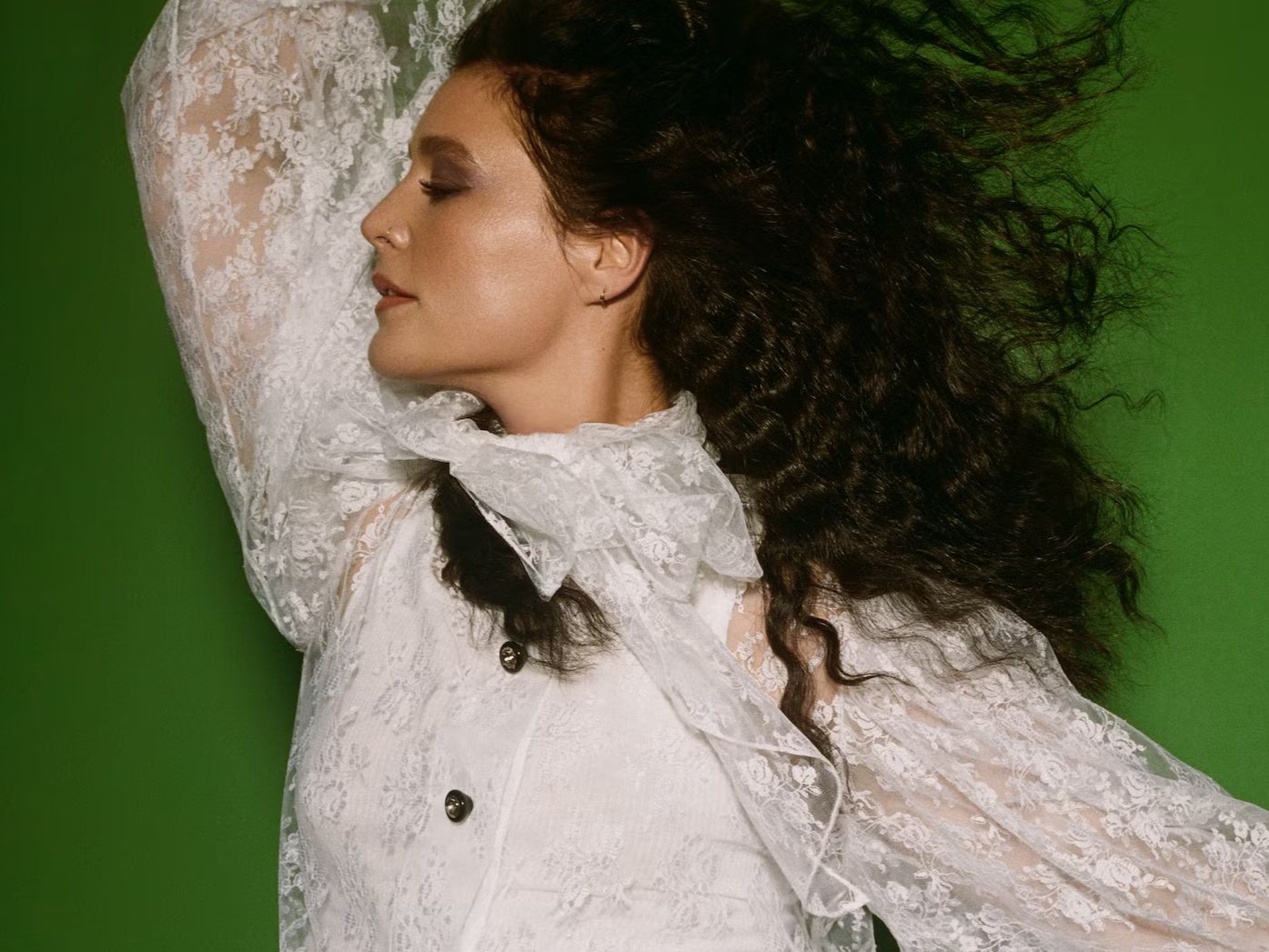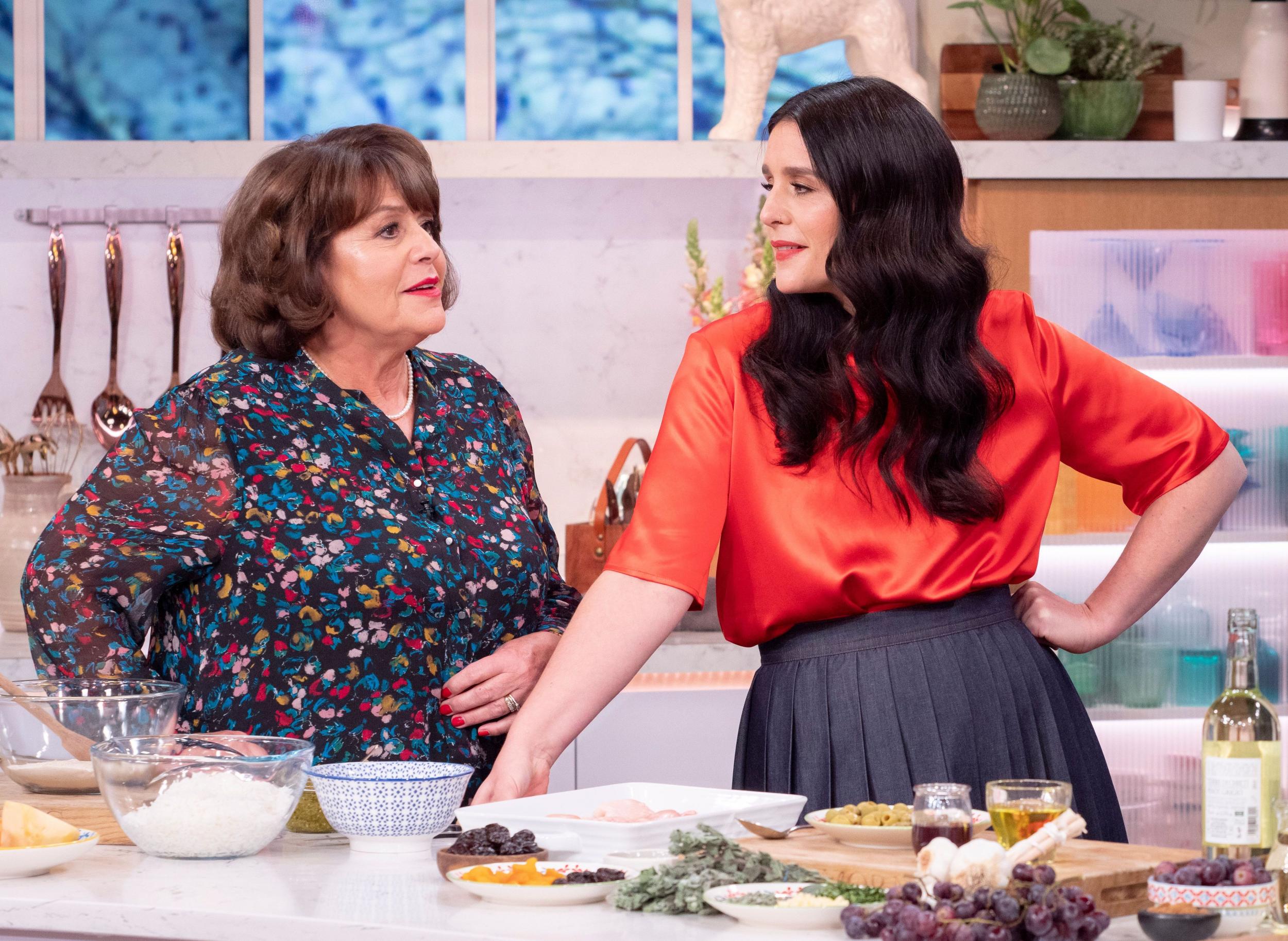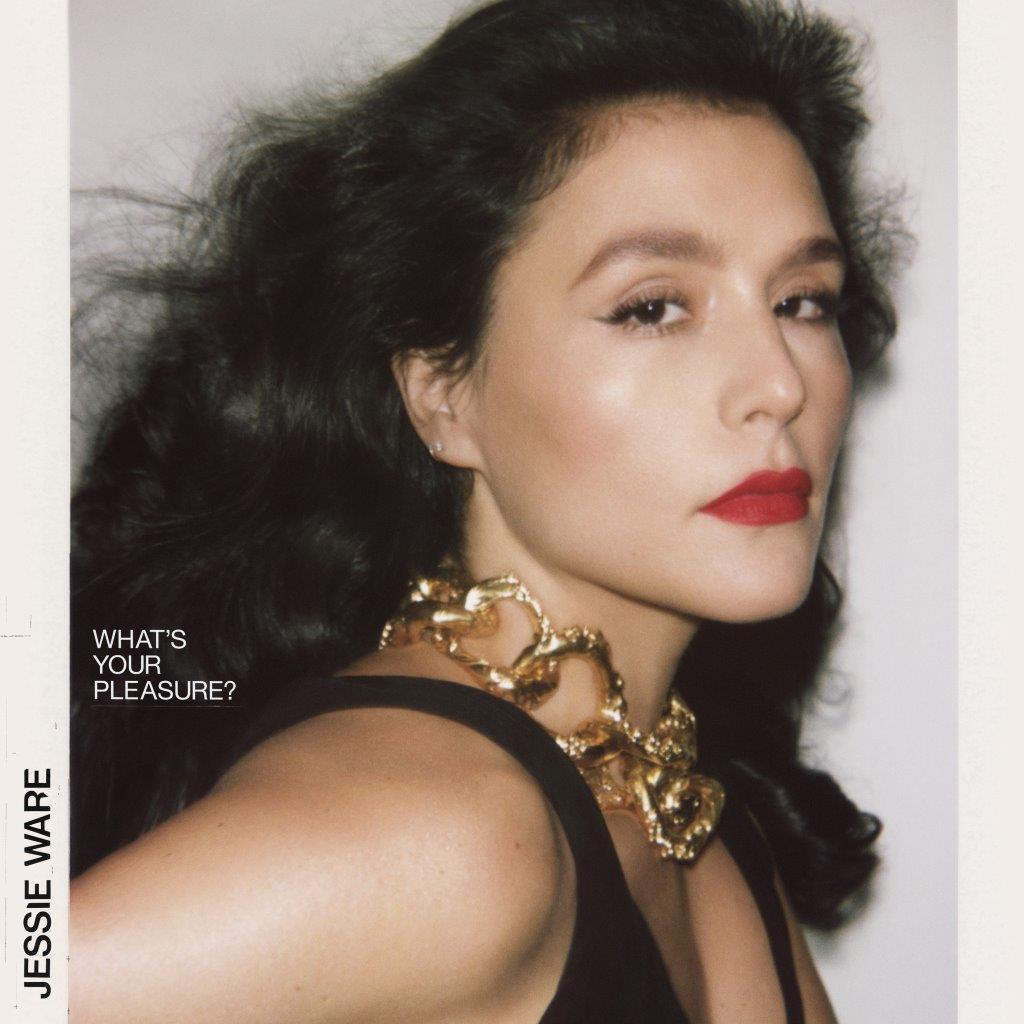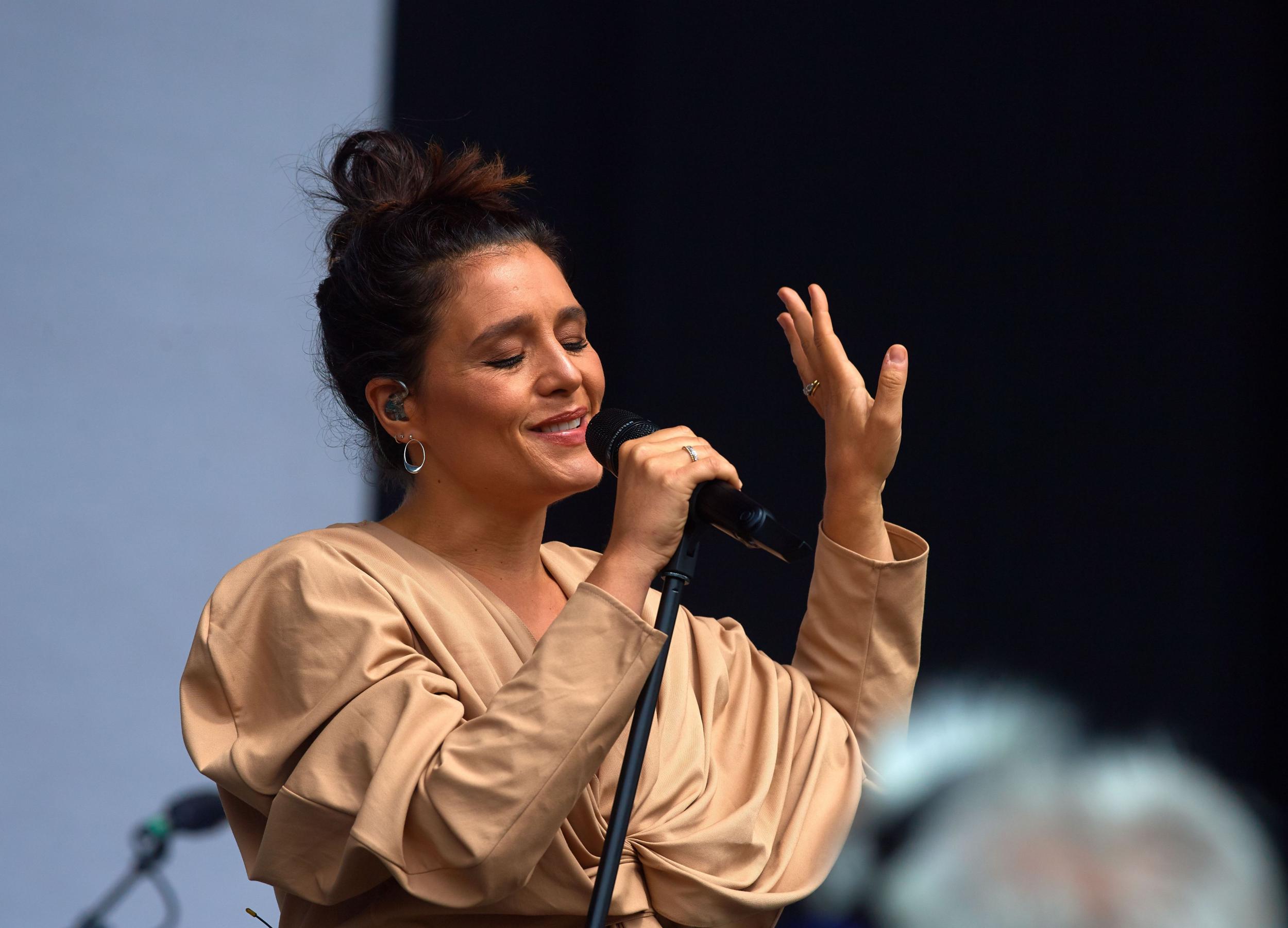Jessie Ware: ‘We are living a dystopian nightmare’
The ‘Say You Love Me’ singer’s podcast ‘Table Manners’ has won her millions of listeners, and her new album is a dazzling return to form. She talks to Kate Hutchinson about her mum Lennie, Black Lives Matter, being an ‘underdog’ and believing in herself


Your support helps us to tell the story
From reproductive rights to climate change to Big Tech, The Independent is on the ground when the story is developing. Whether it's investigating the financials of Elon Musk's pro-Trump PAC or producing our latest documentary, 'The A Word', which shines a light on the American women fighting for reproductive rights, we know how important it is to parse out the facts from the messaging.
At such a critical moment in US history, we need reporters on the ground. Your donation allows us to keep sending journalists to speak to both sides of the story.
The Independent is trusted by Americans across the entire political spectrum. And unlike many other quality news outlets, we choose not to lock Americans out of our reporting and analysis with paywalls. We believe quality journalism should be available to everyone, paid for by those who can afford it.
Your support makes all the difference.Listen to an episode of Jessie Ware’s hugely successful podcast and you can tell she’s a hoot, swearing and blinding as she bickers with her mum in the kitchen, trying not to burn dinner for their famous guests. It’s a little at odds with her image as a melancholy soul-pop operator, but who says you can’t be sultry and hilarious at once. When the world is falling apart, though, it’s hard to be upbeat. The singer is in the unprecedented position of having to promote an album in the middle of a pandemic and the biggest global outcry about racial injustice that we’ve ever experienced.
“It’s been heavy, hasn’t it?” she says nervously of the three weeks since George Floyd’s horrific death, sensing that this is also on my mind. “I’m trying to engage as much as possible and do my part, however futile that feels. I’m trying to learn, trying to support my friends and the Black Lives Matter movement.” She went on two of the London marches, which were “peaceful and powerful”, she says, despite some media reports to the contrary. “The energy was electric.”
Ware is doing her best to remain positive. This morning she was up at 6.30am with her two young children, air punching to “You Only Get What You Give” by New Radicals. “It’s just the most bizarre time to be putting out a record, but we carry on,” she chirps. “I feel quite thankful that people want to chat to me.”
Ever the self-deprecating Londoner, Ware, 35, talks in interviews as if she still can’t believe that she’s got this far. But here we are talking on the phone about album number four, What’s Your Pleasure?, her best yet. Over the past decade, her sensuous, gauzy vocals have become part of the fabric of British pop music and Table Manners, the immensely popular podcast she co-hosts with mum Lennie, has turned her into a bit of a national treasure.
“People know me now more through a podcast than for music,” she laughs, “which I’m totally fine about.” In the past she always seemed to lack confidence in her star power and she’d often say things like “I’m more of a singer than an artist”. But now she’s owning it. “There was a turning point with the podcast,” says Ware now. “I suddenly felt more comfortable in my skin.”

On What’s Your Pleasure?, she sounds like she’s exactly where she’s supposed to be. It’s one for kitchen discos, a socially distanced garden bop, a Zoom vogue-off. Its songs echo the grown-up, slick synth-pop of Robyn and Róisín Murphy; sleek disco numbers with a touch of dusty soul, a frisson of refined cheese, a nod to Bananarama, echoes of Andy Warhol’s Polaroids of downtown New York and a Nineties hairstyle that led one fan to tweet “My sexuality is @JessieWare’s slicked back high-pony”. Whereas once the music industry didn’t know what to do with pop music made by anyone over 30, now Ware’s appeal is broad: her music is rated by Pitchfork as easily as it is played on Radio 1 or Radio 2.
Ware has said that she wanted this record to make “people want to dance, flirt and have sex” and some critics have drawn a line between its club-readiness and the dancefloor focus of her first album, 2012’s Devotion. Was that something she had in mind? Doing “so many f***ing interviews feels like therapy”, she says, adopting a voice to suggest she’s mock-psychoanalysing herself. “Maybe, subconsciously, I enjoyed the feeling of anticipation and excitement that I got when I first entered into doing music and being a featured vocalist so much that I subconsciously wanted to go back to that naivety, when things were less pressured.”

Ware knows that pressure all too well. By her last album, 2017’s Glasshouse, she’d had her first child and became “hyper aware of being 30 and still needing to be on Radio 1. I overcompensated by working too hard and trying to be ‘the woman that could tour with the child, but also do promo’.” The album, her bid for superstardom written with a smorgasbord of chart-topping names including Ed Sheeran, failed to pull numbers. Though it contained some of Ware’s most personal songs about motherhood and relationships, which she had been proud of, “I didn’t feel like it had struck enough of a chord with people”, she says. During its US tour, she was exhausted and losing money. An apparently sparsely attended Coachella performance in 2018, where her set time clashed with Cardi B, was the moment her mum told her to quit.
At the time, Ware had said that she was “ready for the mainstream”, to be the grown-up chanteuse in the glamorous satin dress, but did she really want that?
Enjoy unlimited access to 100 million ad-free songs and podcasts with Amazon Music
Sign up now for a 4 month free trial (3 months for non-Prime members)
Enjoy unlimited access to 100 million ad-free songs and podcasts with Amazon Music
Sign up now for a 4 month free trial (3 months for non-Prime members)
“No. No!” she exclaims, and then adds carefully: “I think you can get pulled along for the ride.” She speaks about her Glasshouse era as being “a real ambition for other people”, which she had happily agreed with, one straw in the Kool Aid. “When you have enough people telling you that you should be this big, you start going, ‘Oh God, should I?’” If you don’t live up to that, “everything feels like a failure”.
“This isn’t to make me sound like I’m a puppet,” she continues, “or that I resent the people that have had such high ambitions for me. But I lead a pretty normal, quite ordinary life. And so this grand [image] was never going to suit me.”
What has always been extraordinary is Ware’s voice. Her friends like Florence Welch knew it, as did the many dance music producers of the late-2000s UK club scene, such as SBTRKT and Julio Bashmore, who rushed to put her vocals on their tracks, or Sampha, who she teamed up with on the 2010 track “Valentine”. Ditching her short-lived career in journalism – following in the footsteps of her investigative reporter father John Ware – she then got swept up in a wave of new British alt-soul singers including Adele, Florence and The Machine and Paloma Faith as her sound started to evolve. And yet, somehow, Ware was the glue between all of these scenes: indie, club and pop. “I’m a good schmoozer,” she jokes. “I’m greedy and I like to be everywhere.”

She often jokes too about her perceived lack of musicianship, saying in one episode of Table Manners how “when I was a backing singer for my friend Jack Peñate, he gave me a tambourine and I couldn’t even do that”. But that imposter syndrome has, in the past, weighed heavy on her mind. “I was very aware of how much I felt like I’d got too much of an easy ride,” she says (something one particularly spiky live review zoned in on). “I felt like I was playing catch up.” It meant that, despite all the Brit Award and Mercury nominations, she “wasn’t able to enjoy what was happening” in her ascendant career.
Fast-forward to 2017 and a friend suggested that she start a podcast. Table Manners was among the first, if not the first, musician-led interview series, with the irresistible twist of adding Ware’s social worker mother and feasting into the mix. Their chemistry is warm and charming as they discuss their lives and what to rustle up for their starry guests, a varied high/low cast spanning Kiefer Sutherland, Mel B, Rick Astley, Sadiq Khan, Ellie Goulding and Emily Maitlis. It’s had 13 million listeners, has spawned a cookbook, and a trend for countless other musician-helmed chat series of varying depth and quality – George Ezra & Friends, Hozier’s Cry Power, The Hang with Gregory Porter – all looking to create that same alchemy.

Ware says she never imagined that she’d end up working with her mother, and it’s certainly tested their relationship. “The fact that I’ve pulled her – dragged her to be honest – into a more public world…” she begins, “I didn’t probably give her enough of a say in it. And I think that was quite uncomfortable for her.” Now journalists are keen to ask Ware about Lennie and sometimes, “she’s a bit like, ‘I don’t want everyone knowing my business,’ which I totally respect”, says her daughter. “I expect too much of her when actually she has a proper job. But also it’s amazing. I think about all these moments we’ve got on tape together and we’ve had a right hoot.” Although Lennie did tell her off after a recent episode. “I over-swore when I spoke to John Legend, and that was very ‘unbecoming’ of me,” says Ware of a recent lockdown special. “I think it was complete nerves.”
For Ware, whose lyrics have in the past been accused of lacking substance, the podcast was an opportunity to show who she really is, potty mouth, giddy nerves, messing up dessert and all. With it, she has effortlessly hit upon the ultimate sweet spot sought after by record execs in high chairs: relatability. Ware knows it, although it happened by happy accident. “Relatability – is that even a f***ing word?” she says, mulling over how contrived it sounds. “Yes. Okay. It showed that by chance. People have bought into that but it was not a plot, which is the best thing ever.”
It’s one reason why she didn’t feel the need to be so personal on What’s Your Pleasure? With Glasshouse, everyone leapt on the Ed Sheeran-penned “Sam”, named after her long-term partner, now husband, and written for her mother, in which Ware sang “And I hope I’m as brave as my mother ... / I hope she knows that I found a man far from my father”. Understandably, she says, her father was upset (he’s since forgiven her) and understandably, Ware might have been wary about a repeat performance. But now “there’s only so much” she can tell about herself in her songs, because “we talk about everything in the podcast – I didn’t need to bring it into my music”.
A word that Jessie Ware keeps coming back to for her new album is “freeing”. With new management in tow, she moved from Universal to sister label Virgin for a “fresh start”, which gave her some much-needed validation. “They could easily have gotten rid of me,” she says of her label. “I know people that have had much shorter careers than me who should have had longer careers.”

She shunned offers of writing in expensive studios in Los Angeles to work with her friend James Ford – who had produced her 2014 album Tough Love – in his attic studio in Clapton, as well as with collaborators including Kindness, Joseph Mount from Metronomy and her former mentor, Dave Okumu. The experience, she says, gave her faith in her own vision. “I totally feel like an artist now,” she says. “This album really cemented that for me. I do feel like I’m getting better as an artist, I understand myself better than ever.”
In some ways, What’s Your Pleasure? builds on her brand of come-hither melancholy – songs like “Spotlight” are pumping but Ware always manages to sound alone, centre stage, under the glare – but there are left turns, too. “Ooh La La” is a kitsch disco-funk tune that shows off her sense of humour in her music for the first time, something else she says has been liberating. Another stand-out tune is the closing track “Remember Where You Are”, Ware and Ford’s answer to Minnie Ripperton’s “Le Fleur”. “I was imagining that it would be one of those songs that was played at the end of The Handmaid’s Tale,” she says. “It’s about observing the world being on fire. And wow, we are living that dystopian nightmare right now.”
There’s a reason why people root for Ware. Pitchfork recently called her an “underdog” – which should be unsurprising for someone whose breakthrough tune was called “Nervous” – and she is so disarming on the phone that it’s easy to forget that she is, in fact, Quite Famous. Riz Ahmed, in his episode of Table Manners, perhaps nailed it best when he told her, “you’re always just so yourself onstage… you were so unpretentious and so yourself”. Although you might say that she’s feeling herself now, more than ever. This is a Jessie Ware rebooted – with an attitudinal flick of that ponytail.
What’s Your Pleasure? is out on 26 June via Virgin Records
Join our commenting forum
Join thought-provoking conversations, follow other Independent readers and see their replies
Comments